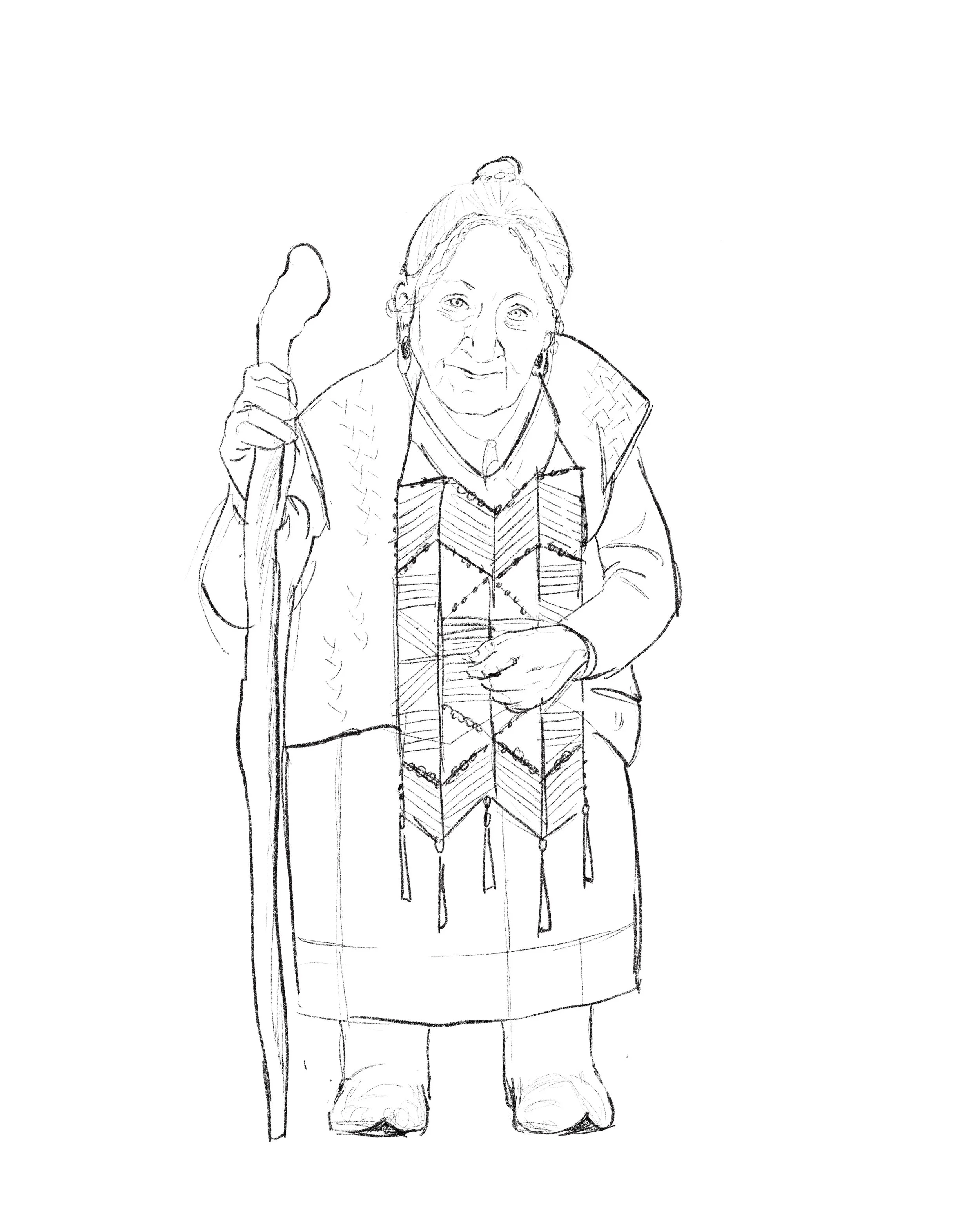Magda
Love huh.
This is one of my all-time favorites.
I currently play in a couple of D&D campaigns, one of which is my family game run by a dear friend. He (the DM) spun off the character of Magda from my sister’s character’s hero worship of her murdered mentor (you following?). Turns out Magda’s a hard bitch to kill. She’s been summoned back from her well-deserved afterlife to guide our group. Tbh, I think there were some deus ex machina needs to be filled since we were running around like chickens with our heads cut off despite very clear clues. Either way, wise and warm Magda has provided a safe haven for our party and lots of sensible good advice.
I seldom get the chance to draw older characters, which is a shame. I think my next PC will definitely have some years on them. Just look at how much fun Travis is having on Critical Role playing older gents - I want in on the Werther’s Original-flavored fun! Crotchety and DGAF is where it's at, y’all.
She lives off of the land. So, by one standard, because she commands virtually no material wealth, she is penniless. But by another standard, she is a woman in her element. An immensely powerful druid living off of nature, which she influences with her magic. And by that standard, perhaps she’s very rich indeed.
Magda, while good-natured, is sad, but without being mopey. She has lived a very long time, then she died at the hands of a former pupil and mentee, whom she loved. She was called back to life, and she came out of a sense of duty, but she’s tired. I think at her core, she’d like to finally lay down her burdens after many centuries, but her sense of duty compelled her to return and to remain.
Regarding her appearance at the end of her life, I’m inspired by this quote from Russka by Edward Rutherford:
It always amused Mal to compare the lives of the people in the village. Those of the men were more vivid, perhaps, but shorter. A man grew strong, either fat or thin; and when at last his strength deserted him, like as not he would suddenly die. But the lot of women was quite different. First they would blossom—pale-skinned, slim, graceful as a deer; then, all and without exception, they would thicken—first at the hips[,] . . . then about the midriff and the legs. And they would infallibly continue to get stouter and rounder, burned by the sun, like a pear or an apple, year after year . . . . Then gradually, still keeping their comfortable, rounded shape, they would begin to get smaller, shrinking gradually until at last in old age they shriveled up, like the little brown kernel inside a nutshell. And thus the old woman—the babushka—with her wrinkled brown face and shining blue eyes, would live out her long last years until finally, as naturally as a nut that has fallen, she sank at last into the ground. It was the pattern for all women. . . . When he looked at an old babushka, he always felt a wave of affection.
Rutherfurd, Edward. Russka: The Novel of Russia (pp. 16-17). Random House Publishing Group. Kindle Edition.


